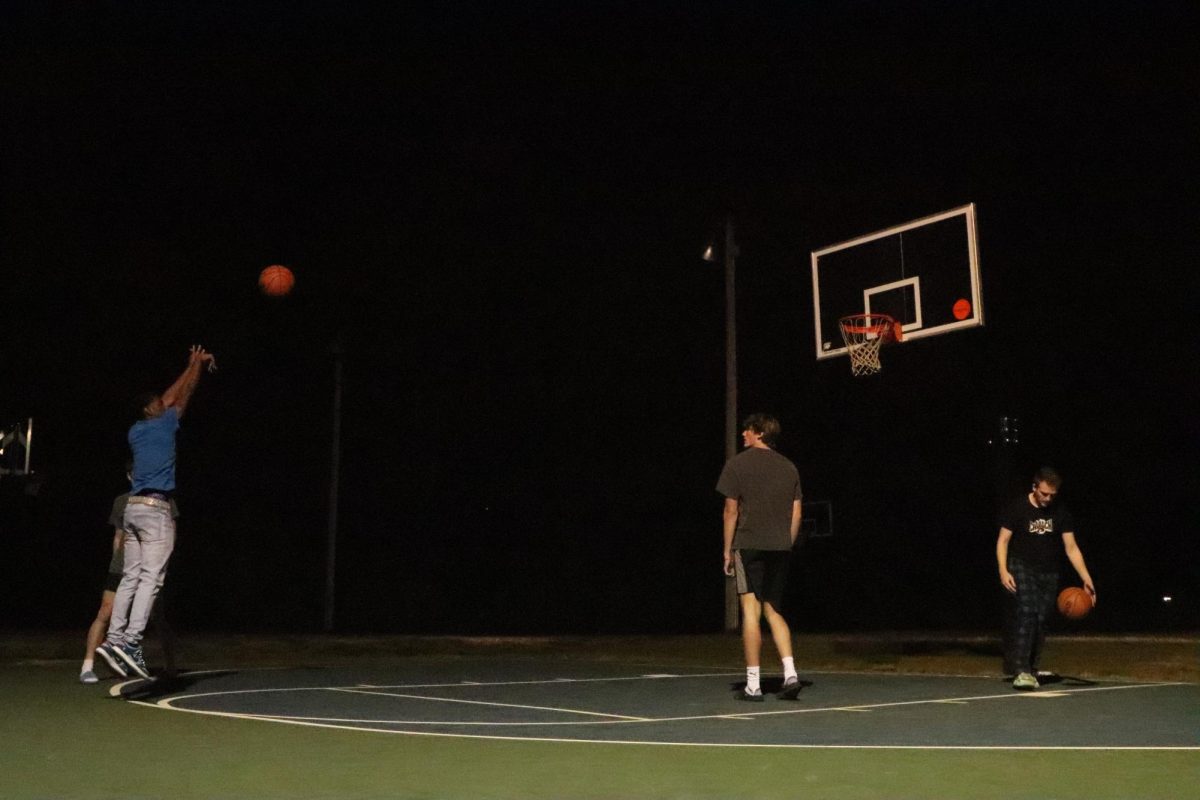When the first Sunday of the NFL season rolled around, Shea Dobson, an 18-year-old senior at duPont Manual High School, was making the final touches on his daily fantasy lineup.
He spent the early morning hours preparing his team, making last-minute decisions on what players to put where. Dobson would stress over who to play, hoping that at the end of the day he would make more money than he put in. Dobson’s fantasy world was slowly becoming an expensive reality.
“Websites like FanDuel — they go straight for your jugular,” Dobson said. “I mean, I’ve put 10 dollars in, and all that goes through your head is ‘What could go wrong? It’s 10 dollars; it’s a one-time thing.’”
Dobson is one of 57 million people in the United States and Canada that have taken part in daily fantasy sports, according to a 2014 report by the Fantasy Sports Trade Association (FSTA). Of those, 66 percent were male.
“As soon as you lose money … you’re going to want to put more in. Even if you don’t have an addictive personality, things like this make it seem so easy to play,” Dobson said. “I was pretty close to getting completely sucked into this world before I saw it for what it really is and realized how much money I was wasting.”
Fantasy sports are not a recent invention — the first known league popped up in the early 1950s. Invented by businessman Bill Winkenbach, early fantasy sports games centered around golf, followed by his creation of the first ever fantasy football league in 1962. To play fantasy golf, a player would pick a “team” of professional golfers, which is unusual being that golf is a traditionally independent sport. The team that ended with the lowest number of strokes would win the game.
For many years, fantasy sports remained an obscure, little-known hobby. Even after experiencing a surge in popularity during the early 1990s, fantasy sports were far from mainstream, and baseball was the sport of choice for fantasy gurus, rather than football. When more people began to access the internet, the fantasy sports industry quickly skyrocketed into pop culture. In 1999, Yahoo became the first major media company to offer fantasy sports, and by 2003, nearly 15 million people were playing fantasy.
Today, fantasy sports is a rapidly growing industry. During the 2006 NFL season, ESPN began to regularly host hour-long television shows dedicated solely to discussing fantasy football. Football experts give their opinions on which players participants should start and sit, along with who should be added to the waiver wire. On weekdays during the basketball season, fantasy basketball experts make appearances on SportsCenter to discuss the best players to use on a given night. In 2009, FX launched The League, a comedy series centered around a group of friends who play fantasy football.
However, in the past two years, a new type of fantasy game has surged in popularity. Daily Fantasy Sports (DFS) are similar to their season-long counterparts in the sense that users set lineups and are then awarded points based on the stats their chosen players rack up. The major difference lies in the fact that instead of drafting players and sticking with them for an entire season, users set new lineups and place bets every week. According to Forbes, the DFS industry will generate roughly $2.6 billion this fiscal year.
“It has only exploded in popularity really in the last two years with the mass advertising blitz,” said Dr. Robert Carini, an associate professor of sociology at the University of Louisville who specializes in the sociologies of leisure, sports, family, and education. “I mean, you can’t miss the ads — they’re everywhere — so they’re suggesting that there may very well be more people actually having addiction problems, and it just may take a few years to shake out here.”
Dr. Carini believes that playing fantasy sports can be beneficial to young people.
“Fantasy sports in general can teach a lot of good lessons, like to be able to keep up with the sports news and the personalities. There’s obviously looking at statistics, being able to predict the future with respect to probabilities, and being able to think strategically,” Dr. Carini said. “These are all great skills to develop, and I think very few people really object much to seasons that may stretch over months.”
The thrill of winning is what keeps many users coming back for more. In 2013, FanDuel, the premiere fantasy sports site, had its largest jackpot ever at one million dollars. With a pool of 48 people, the entry fee was only $10 per player. A player under the username “Tspiedo” took home the grand prize. The largest jackpots for daily fantasy sports have risen up to several hundred thousand dollars. In 2014, these jackpots allowed player Matt Smith of Massachusetts to turn a $27 entry fee into one million dollars.
The risk of playing paid off for Owen Gant, a 17-year-old junior at duPont Manual High School. Gant started by putting in only five dollars and ended up winning over a hundred dollars. “If you know about sports, it’s a good thing,” Gant said. “It’s an easy way to make money.”
Although Dr. Carini recognizes that there are some benefits of playing DFS, he believes that engaging in DFS gambling can ultimately be harmful to young people.
“On the surface, it may seem fairly benign, a little bit of gambling on skills, you know like dice games, board games, simulated gambling, but I do think there is a potential risk,” Carini said. “There have been a lot of studies out there suggesting that if you start gambling young, like at 10, 11, 12, 13, then you are more likely to have a gambling problem later on.”
The FSTA completed research in 2015 showing that the average user tends to spend three hours a week devoted to setting their fantasy lineups. That number may seem small at first glance, but the study also revealed that users spend nine hours simply reading or watching shows focused on fantasy sports.
“If they become fairly addicted to it, it becomes compulsory, it can be cutting into their time with other leisure activities, their schooling, and their friendships.” Dr. Carini said.
Justin Yagey is a 21-year-old junior at the University of Louisville who tried DFS for the first time this year.
“They had a deal where, if you signed up, you got a free 10 dollars,” said Yagey. “I made a five dollar bet with it and ended up winning 250 dollars because I placed first in the league. I was like, all right, this is awesome, I’m going to keep doing this.”
In spite of his success, Yagey said he would strongly discourage adolescents from using DFS.
“I feel like people at my age…are very susceptive to addictive personalities,” Yagey said. “People our age start experimenting with other things in life, and gambling is definitely addictive, especially if you get that taste of victory like I did
. . . They think that they can keep going and going and end up losing a lot of money. They say, ‘It’ll be all right; I’ll win next time,’ and just don’t win. And people who don’t have a lot of money to begin with really shouldn’t be gambling it.”
Dr. Carini had concerns about the impact of fantasy sports on adolescent brain development.
“A lot of studies suggest our brains aren’t really fully formed until we are in our twenties,” Dr. Carini said. “In particular, in respect to the aspects of impulse control — the emotions you feel while gambling, and also being able to keep things in check and have logical control over them. Certain behaviors and such may not be fully formed for some people when they’re young. If the impulse control isn’t there, that’s when people can begin to get into sorts of trouble.”
The issues over DFS’ legality and its possible repercussions may soon be coming to a head, as several states, including New York, have moved to ban it as a form of gambling. Dr. Carini pointed to Eric Schuterman, a New York attorney who led this charge since the end of 2015, alleging fraud based on the ads.
“He’s claiming that they misrepresented the chances that a novice player could win, and the skill level needed,” Dr. Carini said. “But it’s the sense that says, ‘Come on and join, anyone can do it’; well, if anyone can do it, then perhaps it really is a game of chance more than skill, so it is a bit of an ironic thing going on I think that they haven’t fully tested out themselves.”
Time will tell how the battle over DFS shakes out in the courts, but for now, many people, including youth, continue to play.





















jasa Seo • Jun 17, 2016 at 4:35 am
good post